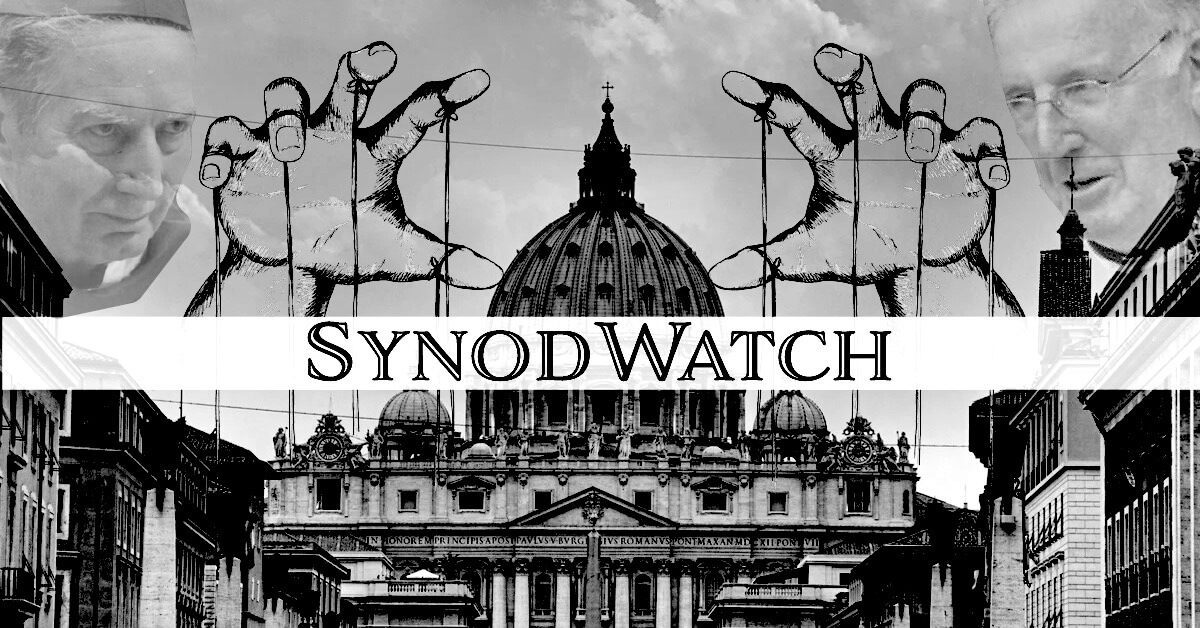|
Getting your Trinity Audio player ready...
|
“No,” Pope Francis said.
He was answering Norah O’Donnell’s question about whether “a little girl growing up Catholic today” could “ever have the opportunity to be a deacon and participate as a clergy member in the Church.” Directly and tersely, the pope said, “No.”
It was a seemingly definitive response—and across the social media site X, a myriad of Catholics celebrated it as such.
And yet Francis—to borrow a term from vaticanista Sandro Magister—has a history of pulling “u-turns.” That is, the pope has a habit of contradicting himself, especially by reversing a verbal “no” with his later actions.
Here is a history of different times when Francis initially seemed to thwart the agenda for female deacons—only to resurrect it, in practice, later on.
“The Door is Closed”
By the time of his first in-flight press conference, Francis had already apparently ruled out the ordination of women, saying: “That door is closed.” But that didn’t stop the pope from later opening a Pandora’s box on the issue of female deacons.
In 2016, Francis created a commission to study women deacons. A couple of years later, the working document for the Amazon synod said that the synod should identify “the type of official ministry that can be conferred on women.” Meanwhile, Bishop Erwin Kräutler, the principal author of the Amazon synod’s working document, admitted that the synod was “maybe a step to” women priests—even predicting that the event would secure “at least the female diaconate.”
Pope Francis ultimately had to report that the commission to study women deacons stopped working because of the “different positions” of everyone. Then, the Amazon synod’s final document declared: “In a large number of these consultations, the permanent diaconate for women was requested. This made it an important theme during the synod.”
In response to the synod’s final document, Pope Francis announced: “I am going to take up the challenge … that you have put forward, that women be heard.” Soon, a second commission on women deacons, at the pope’s behest, was meeting.
“Reserved for Men”
In 2023, a Spanish book-length interview quoted Pope Francis as saying that holy orders, including the diaconate, “is reserved for men.” Yet later that year the synod on synodality discussed women deacons and suggested “more research” on the topic.
Soon, “the question of women’s possible access to the diaconate” was delegated to a study group under the auspices of the Vatican’s synod office. Meanwhile, nun and theologian Laura Pocher reported that Pope Francis was “very much in favor of the female diaconate”—even if he was “still trying to understand how to put it into practice.”
“No… But”
Which brings us back to Norah O’Donnell’s interview with Francis. Ultimately, there was more to the interview than the clip involving Pope Francis’s terse “no” to the female diaconate. O’Donnell had, in fact, pushed the issue further, saying: “I understand you have said no to women as priests, but you are studying the idea of women as deacons. Is that something you’re open to?”
Francis replied: “If it is deacons with Holy Orders, no.” Then he continued: “But women have always had, I would say, the function of deaconesses without being deacons, right? Women are of great service as women, not as ministers, as ministers in this regard, within the Holy Orders.”
So Francis had stressed his opposition to women’s ordination, but then said that women “have always had… the function of deaconesses.” He literally said “No…. But” to the issue of female deacons.
At the end of the day, it is ambiguous what the pope might be envisioning for women. Summarizing what we know about the pope’s thinking, America correspondent Colleen Dulle explains that his words have raised the “question of what type of diaconate the pope may be open to, given his opposition to allowing women to receive the sacrament of holy orders.”
“Little by Little”
Whatever Francis may have in mind, it will presumably advance the objectives of the St. Gallen mafia—a secretive group of high-ranking churchmen who sought to liberalize the Church and, ultimately, elect the then Cardinal Jorge Mario Bergoglio as pope. According to the authorized biography of one mafia member—Cardinal Godfried Danneels—the club discussed the female diaconate during their clandestine meetings, which began in the mid-1990s.
According to Peter Hebblethwaite’s The Next Pope, in 1993, mafia leader Cardinal Carlo Maria Martini (pictured above left) said:
As for the issue [of women’s ordination] itself, I think we should come to it little by little, to gradual solutions that will satisfy not only the most progressive but also the majority. …But I can foresee decades of struggle ahead.
Then, in 1994, just days after Pope John Paul II ruled out the priestly ordination of women, Martini said: “The pope has said nothing about the ordination of women to the diaconate. …I think that a certain space remains open.”
Which means that the agenda for female deacons, far from being dead, is probably just proceeding slowly and patiently—“little by little.”


